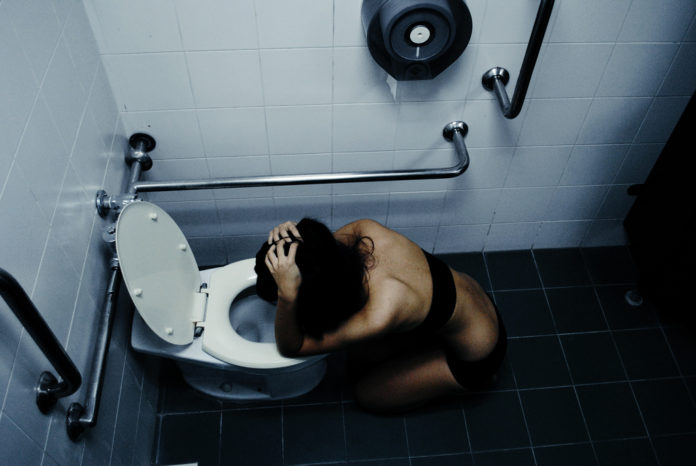You may have heard about Bulimia? Have you? But do you know what it is and how it can affect a person? We have the answer to all these questions. Bulimia Nervosa, or as commonly known Bulimia is a severe psychological disorder for eating. In it, a person eats a large amount of food in a single go, followed by purging or other methods to avoid weight gain.
Purging generally involves various methods like vomiting or use of laxatives, fasting, or excessive exercising. People suffering from Bulimia also act secretly like people with any other disorder due to guilt or shame of their behavior.
People with this disorder can sometimes go to lights to hide their symptoms, which may result in their social and psychological isolation. So how do you identify Bulimia?
We have the answer to this question. In the article below, we have put together all the information for Bulimia varying from its symptoms to diagnosis.
You will also find other aspects related to this disease like its cause, physical, and psychological effects in the article.
Symptoms Of Bulimia
When it comes to identifying the symptoms of Bulimia, they can be categorized into three parts, physical, emotional, and behavioral.
Physical Symptoms
Dentists can easily identify a person with Bulimia. This is because due to self-induced vomiting, a dental erosion of tell-tale pattern on the teeth’s internal surface appears. Other than this, there are many other ways to identify Bulimia as its symptoms in different people vary.
Some common symptoms are:
- Bloodshot eyes
- Chest pains
- Dehydration and imbalance of electrolytes
- Calluses on hands backside
- Chronic constipation bouts
- Sore throat frequently
- Heart palpitations
- Mouth ulcers
- Headache
- Loss of balance or lightheadedness
- Stomach ache
- Tooth cavities
- Blood vomits
- Tooth sensitivity
- Roundness in jaws or swollen glands
- Swelling of feet and hands
- Yellow, spotted, decaying, or graying of teeth
Puffy cheeks are also a noticeable sign with people who’s purging involves vomiting. Russel signs as known medically or calluses on the back of hands due to their insertion in the mouth for forced vomiting is also a visible sign.
In later stages of the Bulimia, the signs of calluses may not even be visible as the person may develop the habit even without any mechanical stimulation.
READ MORE: Clean Your Teeth To Avoid These Potential Diseases
Behavioral Symptoms Of Bulimia
The common behavioral symptoms of Bulimia may be noticed by family and friends. One of them is distancing from people and being secretive. Other symptoms are:
- Creation of schedules which a, low the person to purging and binging.
- Even when exercising for weight loss if it disrupts other daily works, and desperation for it.
- Evidence of a person binge eating like stealing the food, ingesting large food amounts in one go, or food stashing.
- Having packages of diuretics or laxatives or evidence of purging like always needing to go to the restroom after meals
- Exercising in a specific way to specifically burn the intake calories.
- Severe habits of eating like following strict dieting to lose weight with overeating.
- Fatigue appearances
- Visiting the bathrooms frequently
- When a person talks about food, dieting, weight, and calories in a way that disturbs the regular conversations.
- Use of various over the counter drugs for suppression of appetite.
- Isolation from families, friends, and day to day activities.
Emotional Symptoms Of Bulimia
Noticing the emotional symptoms is hard in comparison to the behavioral symptoms. However, they can be noticed by friends and family even if they are not aware of purging or binge behaviors.
This can be done if they pay attention to the person’s behavior. Although the emotional issues are not specific to Bulimia, they come to notice.
Some symptoms are:
- Depression
- Self-critical on extreme levels
- Mood swings
- Extreme irritability
- Strong needs for the approval
- Feeling like a person is out of control
- Things like self-worth, attractiveness, and self-esteem are determined by facts like weight and appearances.
READ MORE: Can Sleeping Disorders Lead to Depression?
Diagnoses
The symptoms and signs of Bulimia can be reversed by using treatments. The best thing you can do for it is to consult a doctor, but if you don’t have any specialist, you can also go to a food physician.
Visiting a doctor will help identify and treat the Bulimia as they will put you through a physical examination and lab tests, which will not only help with the Bulimia but will also help identify any other diseases a person may have.
Bulimia is characterized by:
- Feeling out of control and repeatedly going binge eating large food amounts in short time periods.
- The use of compensatory behaviors like going for extreme exercising, vomiting, using diuretics or laxatives to offset the gains which may occur due to eating.
- Evaluating self on the basis of weight and shape of the body in an unjustified manner.
In addition to these criteria of diagnostics, people may also experience purging and binging for a period of at least one week in a frame of three months, and they must not have the condition of anorexia.
READ MORE: Know Everything About Allergies in Kids
Causes Of Bulimia
When it comes to determining the causes of Bulimia, the exact causes are unknown. However, some factors which may play a role are:
- Biological factors
- Genetics
- Media exposure and influenced by unhealthy role models
- A distorted image of own body
- Having embers in the family who suffer from eating disorders
- Learned behaviors
- A negative pattern of thoughts
- Trauma
People with Bulimia commonly also have mental health conditions that may be co-occurring. Some mental conditions may be depression, obsessive-compulsive disorder, stress, anxiety, and substance abuse disorder.
Treatments For Bulimia
Treatments of the Bulimia involve focusing on the purging and binging behaviors, along with replacing the negative thought process with positive things.
A plan for treatment includes things like medications, physiotherapy, and nutritional education. The treatment team generally involves different professionals like doctors, dieticians, and mental health professionals.
Physiotherapy
Physiotherapies that are helpful in the treatment of Bulimia include mainly three forms of it. These are:
Cognitive Behavioral Therapy
This therapy mainly focuses on the negative thought process of a person by identifying the underlying thoughts and attitudes which they may have for the shape of the body and weight. In it, professionals help people to learn how to change negative thoughts and adopt positive and healthy behaviors.
Dialectical-Behavior Therapy (DBT)
The approach in the DBT includes the CBT and focuses on improving mindfulness, enhancing relationship therapy, learning skills for management of emotions, and tolerance for distress. Thus it helps in improving the person’s mental and psychological condition.
Family-Based Treatments (FBT)
In this approach for the treatment of Bulimia, the focus is on the caretakers or the parents. They try to control the eating habits of the individual.
This controlling is done until the individual is again able to gain control over their eating habits and meal planning. Thus it is one of the most effective therapies for bulimia treatment in children and teenagers.
Medications
The medications for the Bulimia vary and, in some cases, may also include the use of antidepressants.
- Selective serotonin reuptake inhibitors or SSRIs like Prozac, Paxil, and Zoloft.
- Selective norepinephrine reuptake inhibitors or SNRIs like Cymbalta and Effexor.
These are some of the medications which doctors use for the treatment of Bulimia.
WARNING: Self medication can lead to severe health affects, always consult a Doctor prior.
Coping
There are many ways to cope with the Bulimia; some common ways are:
- Treat yourself with kindness
- Make a plan and stick to it
- Use relaxation techniques
- Have a support system and rely on it
- Talk positively about yourself.
These are some of the common ways in which you can try to cope with Bulimia.
Takeaway
Bulimia is an eating disorder that can be life-threatening if on the severe levels. It can impact a person’s physical health as well as mental and social well being.
In the article, we have put together all the information which you may need to understand Bulimia. You will find aspects like its symptoms and diagnosis in the article.
If you like the article, please do let us know in the comment box.




